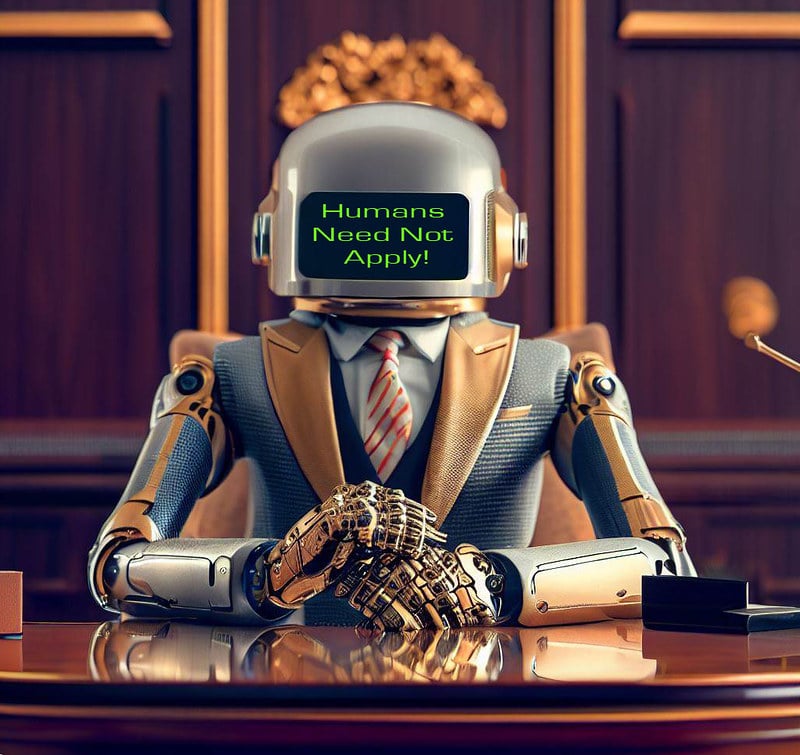In last week’s Monday Miscellany, we posted about a study that purportedly showed the jobs that were safest from being displaced by Artificial Intelligence. As promised, we will now see what the study said about the jobs that are supposedly at the greatest risk. I say, “supposedly” because I don’t believe it, as I will explain.
This time I am working directly from the study, which was commissioned by Microsoft and is entitled Working with AI: Measuring the Occupational Implications of Generative AI. The researchers and authors of the report (assuming AI didn’t write it for them) are Kiran Tomlinson, Sonia Jaffe, Will Wang, Scott Counts, and Siddharth Suri, all of whom are employees of Microsoft.
What they did was to break down various occupations according to the specific activities the job involves (e.g., getting information; analyzing information; caring for others; communicating to the public, etc.). Then they compared that information to the tasks that Microsoft’s CoPilot AI system performed at users’ requests over a nine-month period. From this data, they assigned an “AI Applicability Score,” with the highest scores indicating the occupations that AI could best perform.
Here are the top 40 in order, with the highest AI Applicability Score–that is, the occupation that could be most susceptible to AI–given first:
-
- Interpreters and Translators
- Historians
- Passenger Attendants
- Sales Representatives of Services
- Writers and Authors
- Customer Service Representatives
- CNC Tool Programmers
- Telephone Operators
- Ticket Agents and Travel Clerks
- Broadcast Announcers and Radio DJs
- Brokerage Clerks
- Photographers
- Technical Writers
- Tour Guides
- Copy Editors and Proofreaders
- Librarians
- Museum Technicians
- Archivists
- Event Planners
- Public Relations Specialists
- Marketing Coordinators
- Social Media Managers
- Conference Coordinators
- Advertising Sales Agents
- Travel Agents
- Court Reporters
- Paralegals
- Insurance Underwriters
- Claims Adjusters
- Survey Researchers
- Market Research Analysts
- Fundraisers
- Grant Writers
- Instructional Coordinators
- Human Resources Specialists
- Compensation and Benefits Analysts
- Training and Development Specialists
- Executive Assistants
- Office Managers
- Data Entry Keyers
Historians are number 2? My fellow Patheos bloggers at Anxious Bench are Christian historians who write about their work. Yes, they gather information analyze it, and write it up, and AI can do those sorts of “activities,” but what they do goes far beyond what a Chatbot can do. Philip Jenkins is currently telling us about his latest project, studying the discovery of the apocryphal gospels in the late 19th and early 20th centuries and their impact on theologians and Biblical scholarship. First of all, setting aside the fact that he is working from dusty archives and ancient texts that are not going to be on the internet or in the training material AI has access to, how could AI think of such a project? How could AI find this “interesting” and worth doing? AI could no doubt quickly find out what has already been written on this subject, but how can it add new knowledge, which is what good historians are all about?
Sales? AI might be able to identify customers and provide information, but can it look a customer in the eye and close a deal?
Writers and Authors? AI can generate a novel by following the conventions of other novels, but how can that avoid being conventional?
Photographers? Can AI line everybody up in a wedding and make them say “cheese”? Can AI distract two-year-olds so they will sit still and look at the camera?
Librarians? Can AI shush noisy patrons?
Fund raisers? Can AI sit down with potential donors and guilt them or persuade them to write a check?
Office Managers? Can AI offer leadership that keeps other employees motivated and on track?
Now, contrary to how this research is being played up in the media, I think what the study really shows at the very most is not so much what jobs might be replaced by AI, but what jobs might make the most use of AI. The human being in the job is still critical, as is, as we have argued, the human element that defines it.
Also, I have to question the research design. CoPilot is mostly used along with Microsoft Word, with which it is now packaged, as I’ve complained. To base the capacity of AI on a large sample of how people are actually using CoPilot is to over-represent writing-based jobs. How it is used is a different question from what it can do.
On the other side of the project, the research is based on a superficial understanding of what most of these jobs actually entail. Breaking them all down into “activities”–that is, behaviors, following the assumptions of the outdated behavioralists in the social sciences–is highly reductionistic, leaving out the thinking that is necessary to direct the activities and that defines the job.
Artificial intelligence is not enough. In order for a machine to come close to replacing a human being, it would also need artificial imagination, artificial innovation, artificial instincts, artificial insight, artificial creativity, and artificial agency, to name a few. It would also need to jump out of the computer screen to interact with physical, social, personal, moral, and spiritual reality in a way that goes far beyond the capacity of robots and androids.
More deeply, God has given human beings vocations which God Himself works through as we use the gifts He has given us to love and serve our neighbors. AI has no neighbors and cannot love them. AI will never replace human vocations because AI does not have a vocation.
Illustration: Artificial Intelligence: We’re coming for your jobs! by arbyreed via Flickr, CC BY-NC-SA 2.0













